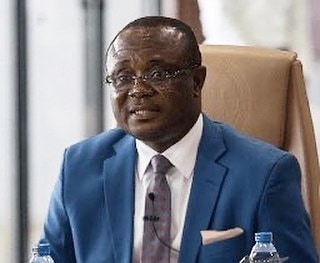|
Getting your Trinity Audio player ready...
|
According to a Justice Network Research, Ghana loses $1.4 billion per year because of illicit financial flows and taxation, Mr Joseph Osei-Owusu, first Deputy Speaker of Parliament has mentioned.
Mr Osei-Owusu said this on Tuesday at the official launch of the African Parliamentary Network on Illicit Financial Flows and Taxation (APNIFFT) Ghana Caucus in Parliament House, Accra.
Mr Osei-Owusu, also the New Patriotic Party (NPP) MP for Bekwai said laws were not the weakest thing but their implementation.
He expressed concerns at the high level the continent was experiencing financial outflows which were perpetuating the kind of damage the slave trade had had done to Africa.
“Illicit financial flow is a global phenomenon, but a dire situation in the country not because of the staggering figures,” he said.
He urged the members to develop interest to follow up on laws made to implement illicit outflow.
Mr Alexander Afenyo-Markin, the Majority Leader, urged executives and members of the caucus to prioritise Ghana’s interests and work toward implementing policies that would reduce illicit financial flows and improve taxation practices.
Mr John Osei Frimpong, NPP MP, for Abirem Constituency, serves as the interim Chairman of Ghana’s Chapter, which has been active for two years.
He pledged the Caucus’ cooperation with like-minded legislators to combat illicit financial flows and tax injustice across the continent.
Related Posts
In all, 35 MPs have been entrusted with the responsibility of representing the Ghana APNIFFT Caucus.
The launch was a collaboration between the Parliament of Ghana and the APNIFFT.
APNIFFT is a flagship programme coordinated by Tax Justice Network Africa (TJNA) with an overall objective to provide an opportunity for its members, the African legislators, to strategise, learn from each other and build their capacities in tackling illicit financial flows (IFFs) and tax injustices in the continent.
APNIFFT was first conceptualised in 2015 and eventually launched in 2017 by TJNA. Since its inception, APNIFFT’s operational strategy has focused on national-level legislative interventions to combat the continent’s IFF issues.
This has been operationalised through country-based (National) parliamentary caucuses that now serve as a basic unit of engagement and mobilisation of Members of Parliament (MPs). These basic units then combine to form regional caucuses, based on membership of regional economic councils, to form the continental caucus.
The network currently boasts a total of 702 members from 41 countries in Africa.
It meets with MPs and members of Civil Society Organisations through capacity-building sessions and meetings to fast-track Africa’s conversation and action around illicit financial flows.
Source: Ghanaweb



